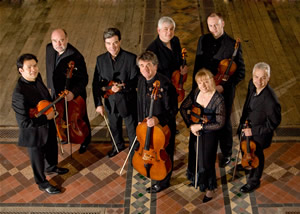Carolina Performing Arts at the University of North Carolina at Chapel Hill has brought to campus Still… Life: An Exploration of a Killing State: North Carolina, a locally written work barely a year old. Members of the Raleigh-based The Justice Theater Project originally premiered this play last April at the Cardinal Gibbons Fine and Performing Arts Center. In association with UNC’s Communication Studies Department, the JTP has since developed and refined the work. The original members of JTP who worked to write the original script — including Carole Marcotte, Lester Leigh Holmes, David Henderson, John Honeycutt, LaMark Wright, Thomas Mauney, and Deb Royals — all feel it is now in its completed form. This revised version of Still… Life, which attempts to examine the Death Penalty in North Carolina from both sides, pro and con, opened March 27th for a two-weekend run at Studio 6 in UNC’s Swain Hall. The JTP is pleased and excited to have UNC’s Joseph Megel direct this production, because the work was refined during 2006-07 in Megel’s Adaptation Seminar.
Carolina Performing Arts’ 2007-08 “Criminal/Justice” series is itself a project that examines the Death Penalty. It has been awarded a grant from the Association of Performing Arts Presenters Creative Campus Innovations Grant Program, which is a component of the Doris Duke Charitable Foundation. JTP’s Still… Life is presented as a part of this project. Given the tragic events of late at UNC and other campuses, involving the deaths of students, and given that the media is maintaining a high-profile investigation of those accused of the acts, Still… Life is a remarkably apt work to be presenting at this particular time.
The members of the JTP who wrote the work did so after extensive field work and research into murders in North Carolina, interviewing survivors of both the victim’s and the felon’s families. The result is a multimedia work that involves heated debate, first-hand accounts, and slides depicting exactly what takes place at a state-sponsored execution. Working backwards from the moment the death is pronounced by the warden, we see — in reverse chronological sequence — the stages that each execution goes through.
It is necessary here to indicate that, in no uncertain terms, The Justice Theater Project as a whole is against the Death Penalty and has worked through a series of projects to bring public awareness to bear on the practice. So, while the voices of those who defend the practice are clearly voiced, the point being made is that executions, being as they are substantially biased by the courts, are not in any way humane or justified, despite objections to the contrary by the political appointees who defend it. In North Carolina, executions fall disproportionately toward non-whites and the poor, who cannot afford expert defense. In the courts, defense attorneys who have tried to plead against the Death Penalty in special cases have been met with stonewalling and deaf ears by those high in the government who might lend a hand in turning death to life in prison.
An ensemble cast of six performs Still… Life. Deb Royals, artistic director of JTP; Anissa Clarke, a UNC graduate teaching fellow; and Kimberly Hardy, a communications graduate student, are joined onstage by local actor and JTP member David Henderson; Raleigh actor John Honeycutt; and actor/comic/firefighter Joseph Callender. As this cast moves quickly and smoothly about the stage, they recreate several different scenarios that address the Death Penalty from the points of view of those who have lost a loved one to murder and those who have had a loved one executed by the state, and also from both sides as they interact with each other in the ongoing argument. Meanwhile the crew uses a staggered backdrop of “baby-blue sheets” (also used during state executions) to project the faces, families, and victims of violent death in North Carolina, both illegal and “state-supported.”
While the ensemble works exceptionally well together, there are still one or two singular performances that stand out. While each individual performs several characters, the Reverend (David Henderson) who has never before worked in the penal system tells us of his first execution and how this term in the N.C. Department of Correction has affected him. Meanwhile, we watch the execution of Harvey Lee Greene (Joseph Callender), who was convicted of killing his aunt while he was high. While the execution takes place, his lawyers tell us the harrowing tale of how they attempted to seek clemency from a government very disinclined to listen, despite the recanting of a psychologist for the prosecution who testified without being given all the facts by the prosecuting attorney. Each of these characters is superbly presented and tightly controlled by the actor.
This work is designed to teach us the incongruities of how North Carolina has specifically misapplied the Death Penalty. The argument is that because North Carolina — before a moratorium was declared that stopped execution in the state — cannot seem to use the Death Penalty in a fair and compassionate manner, it should be eliminated from the justice system. This debate is still taking place in the Legislature. But there is a growing voice among the people of North Carolina that cannot see how the taking of a second life can in any way provide closure for the survivors of murder victims. “State condoned murder” seems, to this growing segment, a very sad result of a justice system that is, itself, in need of life support. Still… Life graphically presents this seeming contradiction in the state judicial system, in the hope that public opinion can be brought to bear on the elimination of the Death Penalty in North Carolina.
Carolina Performing Arts, in collaboration with The Justice Theatre Project, presents Still… Life: An Exploration of a Killing State: North Carolina Saturday, April 5, at 8 p.m. and Sunday, April 6, at 2 p.m. in Swain Hall at the University of North Carolina at Chapel Hill. $15 ($12 students and seniors). 919/843-3333 or click here [inactive 9/09]. Note: After the April 6th performance, there will be a discussion facilitated by Rene Alexander Craft of the UNC-Chapel Hill Department of Communication Studies and a reception with the actors. Carolina Performing Arts: http://www.carolinaperformingarts.org/. The Justice Theatre Project: http://www.thejusticetheaterproject.org/.












